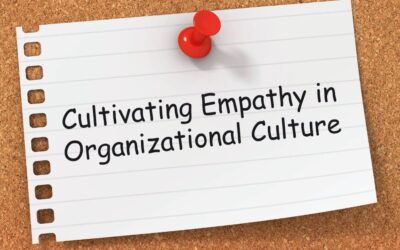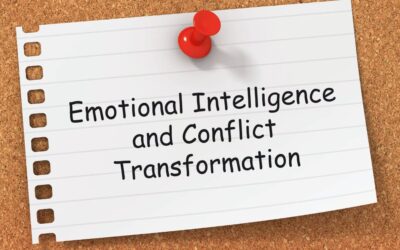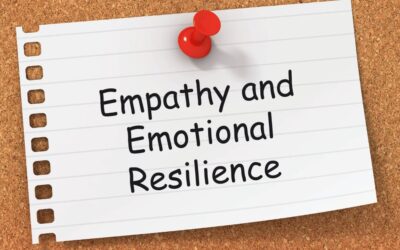Listening is a fundamental aspect of effective communication, particularly in relationships. Empathetic listening goes beyond simply hearing words; it involves understanding and validating your partner’s emotions. In this lesson, we explore the significance of empathetic listening in relationships and provide strategies to develop and practice this essential skill.
Practicing empathetic listening in relationships involves the following key strategies:
- Be Fully Present: Give your partner your undivided attention when they are speaking. Eliminate distractions and focus on them completely. Show genuine interest in what they are saying and create a safe space for them to express their thoughts and emotions.
- Listen with Empathy: Listen not only to the words but also to the underlying emotions and feelings your partner is conveying. Pay attention to their tone of voice, body language, and facial expressions. Seek to understand their perspective and put yourself in their shoes.
- Validate Their Emotions: Acknowledge and validate your partner’s emotions without judgment. Let them know that their feelings are valid and that you understand their perspective. Avoid dismissing or minimizing their emotions, as this can create distance and hinder open communication.
- Practice Reflective Listening: Engage in reflective listening by paraphrasing and summarizing what your partner has shared. This demonstrates that you have truly understood their message and helps clarify any misunderstandings. Reflective listening also shows your partner that you value their thoughts and emotions.
- Ask Open-Ended Questions: Encourage deeper conversation by asking open-ended questions that invite your partner to share more about their thoughts and emotions. This demonstrates your genuine curiosity and encourages them to express themselves more fully.
Benefits:
Practicing empathetic listening in relationships offers numerous benefits:
- Deeper Connection: Empathetic listening strengthens the emotional bond between partners, fostering a deeper connection and understanding. When partners feel heard and understood, they feel valued and supported, which strengthens their relationship.
- Enhanced Communication: Empathetic listening promotes open and honest communication. By truly understanding and validating each other’s emotions, partners can communicate more effectively, resolve conflicts constructively, and express their needs and desires in a healthy manner.
- Increased Trust and Intimacy: When partners feel heard and validated, trust and intimacy flourish. Empathetic listening builds a sense of safety and security in the relationship, encouraging partners to be vulnerable and share their deepest thoughts and emotions.
- Conflict Resolution: Empathetic listening is a crucial skill in resolving conflicts. By understanding and acknowledging each other’s emotions, partners can find common ground, compromise, and work towards mutually satisfactory resolutions.
Strategic Ways to Implement Empathetic Listening in Relationships:
- Practice Mindfulness: Cultivate mindfulness to be fully present and attentive when engaging in conversations with your partner. This allows you to actively listen and respond empathetically, deepening your connection.
- Seek Understanding, Not Just Solutions: Instead of rushing to provide solutions or advice, focus on truly understanding your partner’s emotions and perspective. Create space for them to express themselves fully without interruption or judgment.
- Validate Emotions: Validate your partner’s emotions by acknowledging and accepting them without judgment. Show empathy and understanding, even if you may not fully agree with their viewpoint.
- Reflect on Your Listening Habits: Take time to reflect on your listening habits and identify any areas for improvement. Consider how you can be more present, attentive, and empathetic in your interactions with your partner.
Conclusion:
Empathetic listening is a powerful tool for building strong and harmonious relationships. By being fully present, listening with empathy, validating emotions, practicing reflective listening, and asking open-ended questions, individuals can foster a deeper connection with their partners. The benefits of empathetic listening include a stronger emotional bond, enhanced communication, increased trust and intimacy, and improved conflict resolution. By implementing strategic approaches and making empathetic listening a priority in relationships, individuals can cultivate more meaningful and fulfilling connections with their partners.
FAQs:
Can empathetic listening improve communication in all types of relationships?
Yes, empathetic listening is beneficial in all types of relationships, including romantic partnerships, friendships, family relationships, and professional relationships. It enhances understanding, fosters open communication, and strengthens the emotional connection between individuals.
How can I become a better empathetic listener?
Becoming a better empathetic listener requires practice and conscious effort. Focus on being fully present, listening without judgment, validating emotions, and practicing reflective listening. Seek to understand your partner’s perspective and show genuine empathy and understanding.
What if I find it difficult to validate my partner's emotions?
Validating emotions can be challenging, especially when there is a difference in perspectives. Remember that validating emotions does not mean agreeing with them; it means acknowledging and accepting your partner’s feelings as valid. Practice empathy and strive to understand their emotions from their point of view.
How can empathetic listening contribute to conflict resolution?
Empathetic listening is essential for conflict resolution as it allows partners to understand each other’s emotions, perspectives, and needs. By actively listening and validating emotions, conflicts can be approached with compassion and a focus on finding mutually satisfactory resolutions.
Can empathetic listening help strengthen trust in a relationship?
Yes, empathetic listening plays a significant role in building trust in a relationship. When partners feel heard, understood, and validated, trust is nurtured. Empathetic listening creates a safe space for open and honest communication, strengthening the foundation of trust and intimacy in the relationship.













